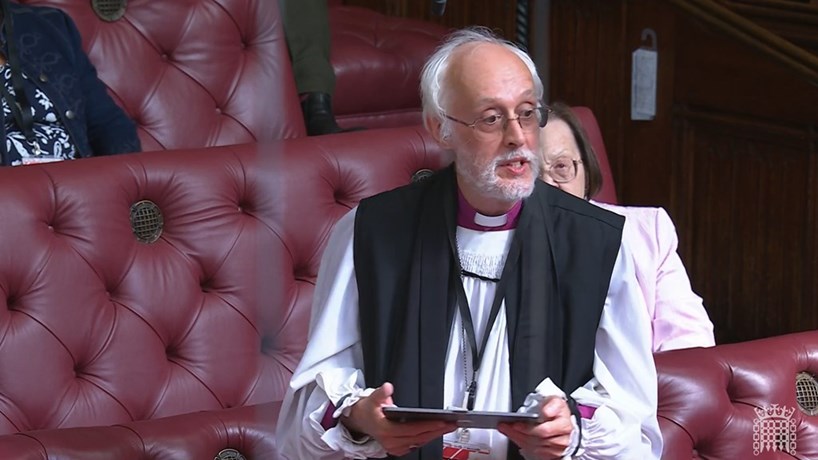PETERTIDE ordinations meant that the Bishop of Manchester, Dr David Walker, was the sole representative of the Lords Spiritual to contribute to the Second Reading of the Planning and Infrastructure Bill in the House of Lords on 25 June.
He clarified that there was “considerable interest in the Bill on our Benches”, despite the limited episcopal input. “This just also happens to be one of the busiest weeks of our year. Several hundred new priests and deacons will be ordained in our cathedrals across England this coming weekend,” he said.
“We desperately need a rapid expansion in the building of social homes, ideally at social rents. Enactment of the measures here included can be part of the architecture — please excuse the pun — we need if we are going to underpin the ambition for a mixed economy for housing, one which will live up to the Archbishops’ Commission on Housing’s values of homes that are safe and sustainable.”
With regard to “rural provisions”, he said that “the Bill provides an important opportunity to protect chalk streams, which are both globally rare and ecologically very significant.”
Dr Walker had “long championed the needs of the Gypsy, Roma, and Traveller communities. They have been part of the backbone of rural Britain for many generations, but they are increasingly pushed to the margins”. He was keen “to ensure that Gypsy and Traveller accommodation figures are included and explicitly referenced in the requirements of spatial-development strategies”. He said that “the definition of social housing could also helpfully be amended to include local-authority Gypsy and Traveller sites”.
The Communities Minister, Lord Khan (Labour), introduced the Bill and referred to the “consensus in this House that the country could and should be better served: better served by more decent housing, with a better, faster process for agreeing what infrastructure is needed to support the communities we build; better, greener infrastructure to help the country meet its climate targets; a better deal for nature, which we know the public deeply cares about”.
He said that the Bill would “further support the Government’s clean power 2030 target, enabling essential clean-energy projects to be built as quickly as possible”.
Lord Naseby (Conservative) was concerned that some adaptations, such as solar energy and “heat pumps in every property” were “not feasible”.
“I worked in Hull, which had row after row of terraced housing. Those properties cannot have heat pumps,” he said.
 Parliament TVThe Bishop of Manchester, Dr David Walker, addresses the House of Lords on 25 June
Parliament TVThe Bishop of Manchester, Dr David Walker, addresses the House of Lords on 25 June
Others also voiced concerns. Lord Goldsmith (Conservative) said: “We have 85 per cent of the world’s chalk streams, but only 11 out of 220 are currently protected.”
Baroness Grender (LibDem) was concerned that “this Bill continues with the overcentralised, developer-led approach that has demonstrably failed to deliver.”
For Baroness Bennett (Green), “the health of nature is the health of human beings — we human animals living on this fragile planet in this terribly nature-depleted country.”
Lord Fuller (Conservative) was keen to emphasise the “need to optimise housing and economic growth within the context of optimising the burden of well-meaning regulations. We need to get the public-private balance right.”
He said that “too often, officialdom, in its widest sense, is inflexible. It interprets the local plan grounded in data which might be several years old and stuck in the past, rather than addressing the needs of tomorrow.”
In summing up, Baroness Taylor (Labour), Parliamentary Under-Secretary of State at the Ministry of Housing, Communities and Local Government, said that she had been at “St Mary’s school in Walthamstow yesterday, where the children are doing a project on homelessness, and I asked them what they would say to the Prime Minister. They said, ‘Can you tell the Prime Minister to build some more homes that people can afford?’”
She thanked Dr Walker for his mention of “the very excellent report of the Church Housing Commission and the Nationwide Foundation. I was very grateful for that piece of work; it has been incredibly helpful in shaping thinking, particularly on social, affordable and specialist housing.”
The Bill was committed to a Committee of the Whole House.

















